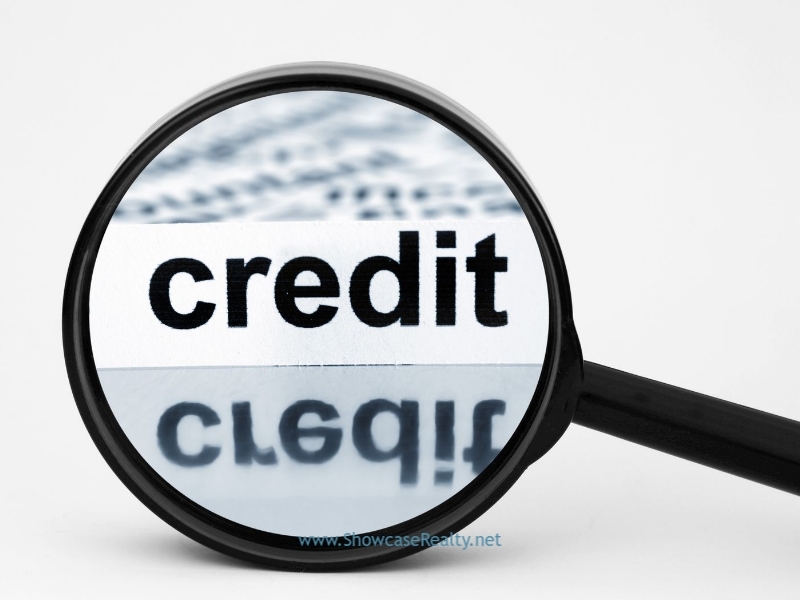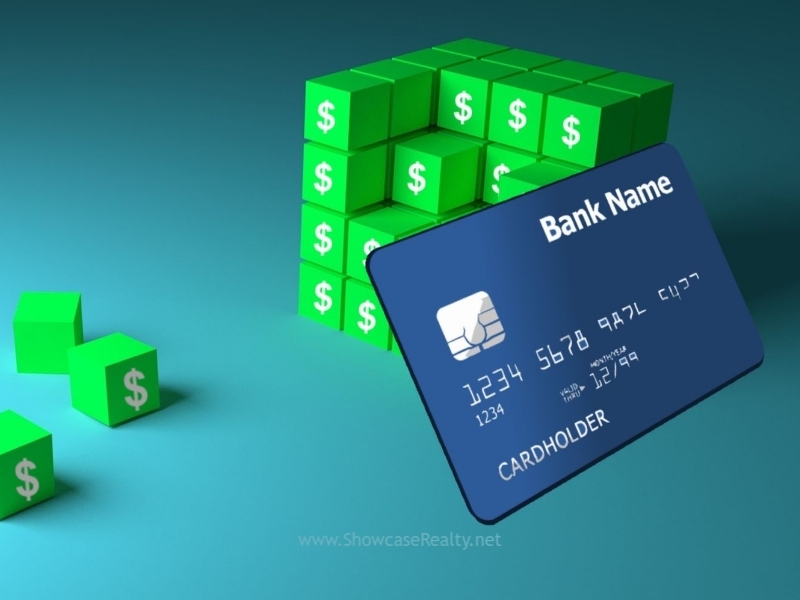How to Improve Your Credit Score Before Applying for Home Loan
July 11, 2020
Post by: Nancy Braun, Showcase Realty

Buying a house in Charlotte NC can be a lot of work. You need time to save, documents to prepare, mortgage brokers to talk to, and application forms to fill out. One aspect that affects the home buying process is applying for a mortgage, which in turn is significantly influenced by the credit score.
The 3-digit score holds a lot of weight in the mortgage application process. It tells lenders your potential credit risk and the ability to repay loans. It affects the mortgages you can be approved for, how much you can borrow, the possible mortgage rates you'll pay, etc.
That's why it is important that you improve your credit score before you apply for a mortgage. If you have a poor credit history, you need to work on raising your credit score. If you already have good credit, you'll need to learn how to manage and avoid new debt.
9 Ways to Get in Credit-Worthy Shape
1. Know your credit score
Before you dive into the home buying process, you need to know what your credit score is. You'll be surprised to know that many first-time buyers have no idea what their credit score is.
Why find out your credit score?
Your credit score affects your financial life more than you may realize, and it's not just in buying a home. It affects your ability to get a credit card, rent an apartment, or even get a job.
You need to know your credit score because, obviously, it determines your ability to qualify for a home loan.

It also tells you how much you should pay in interest on a loan before you apply for a loan. Even a .5 difference in interest rates translates to thousands of dollars of additional interest rate in the life of the loan term.
Where can you find out your credit score?
You can get your credit scores from your credit card issuers. The internet is another great resource. It is accessible and convenient, and there are plenty of free websites that allow you to check on your credit score.
You can also find several apps on your mobile phone. These apps allow you to see your credit score, total debt percentage, credit history, and your recent credit injuries.
2. Pay your credit card debts
Keep your credit score in good standing by posting up-to-date payments. However, if you’ve missed a bill payment, it doesn't mean you should forget about it. A great way to improve credit scores is to catch up on your late payments. Doing this will reflect on your payment, showing that you are taking financial responsibility though you may be late for payment sometimes.
Accounts with missing payments can ruin your credit score so as much as possible, pay all your delinquent accounts.
3. Check your credit score for errors and have them removed
If you think your credit reports always paint an accurate picture of your credit history, you're wrong. Mistakes and inaccuracies appear on credit reports more often than you would like to think.
Inaccuracies happen in your credit history. It could be minor like misspellings of names, addresses, or other personal information. At other times, it could be in the form of incorrect payment history, fraudulent accounts, accounts from an ex-spouse, or outdated information which could impact your credit score significantly.
If you're wondering why your credit score is not as high as you think, you may want to check all the credit accounts listed there.
When you find something that's not yours, you can apply for a dispute with the credit reporting company. The dispute process is free. Credit bureaus are legally obligated to investigate when you dispute the accuracy of your credit report.
When the incorrect accounts have been proven, have them removed from your credit report. Removing disputed accounts can improve your credit score fast.
4. Pay ALL bills on time
This may sound like a silly tip, but it should be emphasized. If you want to improve your credit scores, you need to pay your bills on time.

The following factors make up your credit score report:
- Credit payment history (35%)
- Debt-to-credit utilization (30%)
- Length of credit history (15%)
- Credit mix (10%)
- New credit accounts (10%)
Since payment history is the heaviest variable, making payments ON TIME has a lot of pull in improving your credit score.
If you cannot pay on time for whatever reason, contact the company or organization and inform them about your situation. Many companies will work with consumers to set up a payment plan acceptable to both parties.
5. Don't close old accounts
If you have old credit accounts you haven't used in years, don't close these accounts. Since credit history is one of the factors in your credit score, closing up old accounts may reduce the available credit you have and affect your length of credit history.
Closing a credit account will have a negative effect on your credit scores.
Leaving your credit account open increases your overall credit limit. Also, credit scoring models like to see a variety of accounts on your credit reports, including credit card and installment loans.

6. Avoid opening new accounts
Another way to improve credit score is to avoid applying for credit cards. This small misstep could seriously derail your homeownership plan.
How? New credit card applications could affect your scores. This is especially true for credit card churners or people who open and close new cards to take advantage of discounts or limited promotions. Churning cards can make you have significant credit scores, which may turn out to be thousands more in the loan payment.
However, if you just applied for one credit card, you haven't necessarily ruined your chances of getting a home loan. Lenders tend to look at the consumer's entire profile, financial capacity and willingness to pay a loan, rather than focus on just one single factor. Just remember not to put any charges on the credit card when it arrives.
7. Get a secure credit line
If you have bad credit or you find out that you don't have enough credit lines, you would need to open a new credit account.
A secured credit account requires a cash deposit when you open the account. The deposit is almost equal to your credit limit, so if you deposit $500, you have a $500 limit.
The deposit money lessens the risk to the credit card issuer. In case you can't pay your bill, the issuer can take the money from your deposit. When you always pay your bill on time, you'll eventually get the money back.

8. Be an authorized user
Many parents use this method to help children get a jump start on their credit. You can also use this method to boost your credit.
Choose a family member who you know is responsible and always pay their bills on time. Request to be added as an authorized user on their credit card account. This means you can use the card to make purchases, though you are not the primary account holder.
When your name has been added to the account, the entire history of the credit account will be included in your credit report and credit score. This will boost your credit score.
Before you do this, have the primary cardholder check with the credit card company and credit agency if they are allowed to include authorized users. Not all credit card companies authorize this because this practice has been abused.
9. Seek help from a professional
Though the eight steps we've shared are effective, you may find yourself still unable to improve your credit score. When this happens, it may be time to contact a professional. There are plenty of organizations designed to help consumers improve their credit scores.

Understanding how your credit score works will help you find the best deal when you purchase a home.
Would you like to know if you can afford that Charlotte property you’ve been eyeing for months? Get a free credit report, or have your credit score computed. That way, you’ll know if you can afford the payments or if you need more time to save.
Call me, Nancy Braun, at (704) 997-3794. Let’s talk about your needs and wants in a home.
Are you ready to buy a home? Call me, Nancy Braun at (704) 997-3794 today.
Get a FREE copy of Nancy's book, The ULTIMATE No Holds Barred Guide To Buying and Selling A Home In The Carolinas, visit: http://www.experthomehelp.com/
Subscribe to our YouTube Channel to get more home buyer and seller information and tips.



